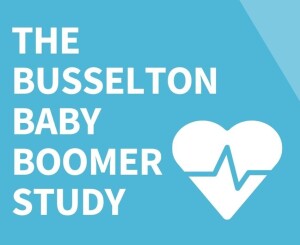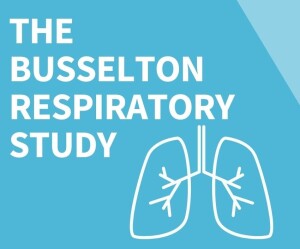A new major cross-sectional survey of adults funded by the NHMRC Project Grant scheme commenced in Busselton in early 2020 with recruitment completed in mid 2023. The project will investigate the factors that contribute to lung health problems such as breathlessness, cough, asthma and chronic obstructive lung disease (COPD).
There is growing recognition that these common lung problems have overlapping clinical features and symptoms. This makes accurate diagnosis difficult and results in inappropriate treatment (too much, too little, too non-specific). The Busselton Respiratory Study will measure the frequency of potentially treatable factors (phenotypes), how much they overlap and how best to detect them in the general population.
Who took part?
Recruitment closed in June 2023 and over 2000 adults listed on the electoral roll in the City of Busselton attended. Data analyses are currently underway.
Study background
Investigators: Professor Alan James, Dr Michael Hunter, Dr Jennie Hui, Professor Bill Musk; Professor Matthew Knuiman; A/Professor Siobhain Mulrennan; Dr Claire Tobin; Dr Kevin Murray; A/Professor John Beilby.
There is increasing confusion about labelling and treating airway diseases because “asthma” and chronic obstructive pulmonary disease (“COPD”) mean different things to different people and they overlap with regard to symptoms and abnormalities in the lung. This project will define the abnormalities in the lung and relate them to symptoms in a general population, without using diagnostic labels, to establish descriptors of airway diseases that better relate to treatments and prognosis.
Aims
Investigators will use new and extant data and biological samples to:
1. Determine the current prevalence of respiratory symptoms, tobacco smoking, “asthma”, “chronic obstructive pulmonary disease” (“COPD”), chronic bronchitis, atopy, airway hyper-responsiveness and airway inflammation, together with detailed measurements of respiratory function;
2. Use the time-course data from the repeated cross-sectional studies to model age, period and cohort effects on “asthma”, “COPD” and their intermediate phenotypes;
3. Develop multidimensional models of “asthma”, “COPD”, and associated traits that reflect their true complexity and underlying pathologies validated by detailed measures of respiratory function.
Significance
The project will undertake cluster and other analyses of cross-sectional data from an unbiased, general population sample. This will allow the identification of clusters of airway disease that may be detected in general practice using simple tools and that can be targeted for treatment.
The project will develop a framework for recognizing the various diagnostic elements of airway diseases that will be useful in primary care, independent of labels such as “asthma” and “COPD”. The unbiased (blind), random sample approach of the proposed project will allow broad generalisability of the results. The data will be used to develop investigative, diagnostic, prognostic and treatment algorithms for patients presenting in primary care using accessible, validated measures.
It is the aim of the project to characterize airway diseases to provide primary care physicians with relevant patient traits that can be used to usefully direct appropriate treatment and prevention strategies, and monitor progress.
More immediate outcomes will be:
1) the recognition of problems related to the existing confusion in labelling airway diseases, including diagnostic inaccuracy, inappropriate treatment, sub-optimal investigation;
2) relating current characteristics to longitudinal changes in lung function, airway responsiveness, atopy and smoking habits;
3) assessing the accuracy of spirometry, sputum testing, blood eosinophils, eNO and measures of airway resistance in a general population setting. Outcomes from this project will be used to develop tools / algorithms for the assessment and rational treatment of airway disease in primary care, moving away from misleading labels and inappropriate short-term trials (or inappropriately sustained) treatment.






